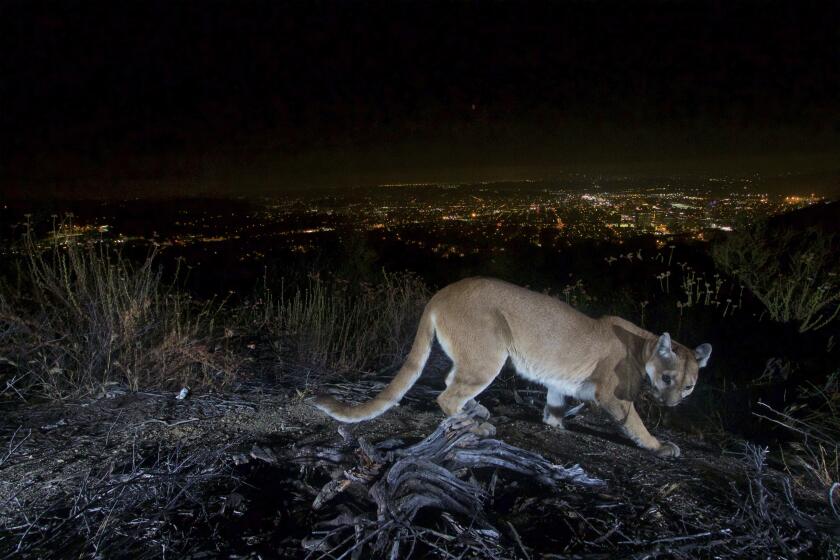‘Searching for Crusoe’ Explores the Enduring Allure of Islands
Islands appeal to the classic human desire to escape the troubles of civilization and find a simpler way of life. But, as Thurston Clarke warns in his “Searching for Crusoe,” islands are also becoming a kind of geographical endangered species, threatened, on one hand, by the relentless tourism and massive overdevelopment that homogenize their distinctive identities, and, on the other, by global warming, which may cause some of the most beautiful of them to vanish beneath the waves.
In this, his ninth book, the versatile Clarke, who has explored subjects ranging from the “Equator” and the “California Fault” to “Pearl Harbor Ghosts” and “Lost Hero” Raoul Wallenberg, visits more than a dozen islands scattered all over the world, from Spitsbergen, near the North Pole, to the Maldives in the Indian Ocean. Some, like the Spice Island of Banda Neira, strike him as close to paradisal; others, like Grand Cayman in the Caribbean, as soulless, concrete nightmares. Some are rich with associations: personal, historic, literary or religious. Clarke himself treasures memories of childhood summers on peaceful Fishers Island in Long Island Sound. Traveling to the South Pacific, he seeks out the originals of the islands that inspired the James Michener stories that, in turn, inspired the Rodgers and Hammerstein musical. The sunny Greek isle of Patmos was home to St. John the Evangelist, while rainy, wind-swept Jura, west of Scotland, was where a tubercular George Orwell retreated to write “Nineteen Eighty-Four.” However dissimilar in climate and ambience, both islands, he finds, offer the precious gift of solitude tempered by community.
The story of Robinson Crusoe, Clarke observes, “persuades us that islands are more liberating than confining, more contemplative than lonely.” Four hundred miles off the Chilean coast, on Mas a Tierra, widely considered the original for the island in “Robinson Crusoe,” Clarke finds “a population of natural solitaries,” who are rather too withdrawn, even for his taste.
On many islands, however, sociability plays a key role. On the Hebridean island of Eigg, Clarke meets people who have gladly given up the conveniences and distractions of British mainland life for the pleasures of living in a small, tightknit community “where no one was very rich or poor, and where everyone . . . acted like members of an extended family.” “Men who own islands want to be kings,” he observes, “but islanders are natural republicans.” While Malekula in the South Seas once boasted cannibals, the Pacific islanders of Kosrae and Abemama are considered some of the gentlest people on Earth. On the latter isle, once happily isolated from the world, the elders have become worried about the future of their culture. Clarke describes a distressing scene in which a group of Abemaman youngsters solemnly watch a violent and gory James Bond film.
On the rustic Canadian island of Campobello, Franklin and Eleanor Roosevelt led an unpretentious, spartan life, with no phones or electricity. “When the fog rolled in,” Clarke tells us, “the Roosevelts lit the oil lamps and spent several days reading, conversing, playing games, and amusing themselves, instead of driving into the next town looking for fun.” Ironically, former President Clinton’s Whitewater partner, Jim McDougal, was involved in a (fortunately) unsuccessful scheme to develop the place: “Campobello might have been good enough for the Roosevelts,” Clarke remarks dryly, “but it apparently lacked sufficient diversions for the average Arkansas Rotarian, so McDougal and his associates . . . rolled out goofy schemes for a water-slide park and a ski hill, although Campobello lacked real hills or reliable snow.”
In far greater danger are the coral atolls of the Maldives, threatened by the rising seas of unchecked global warming. Another alarming development is the proliferation of resorts with climate-controlled rooms, artificial landscapes and noisy power boats. Clarke contrasts “the genuine security” of a real island community with the paranoiac security of a resort boasting “a children’s day camp equipped with digital cameras, pagers, and radios. . .” He also has a few choice words about a certain television program set on an island: “ ‘Survivor’s’ participants . . . experience very little silence or solitude, and the program promote[s] competition and low cunning rather than community.” Clarke’s thoughtful travelogue shows us that the islands that have always appealed to the human heart are those with a harmonious balance of solitude for the individual and membership in a caring community.
More to Read
Sign up for our Book Club newsletter
Get the latest news, events and more from the Los Angeles Times Book Club, and help us get L.A. reading and talking.
You may occasionally receive promotional content from the Los Angeles Times.






